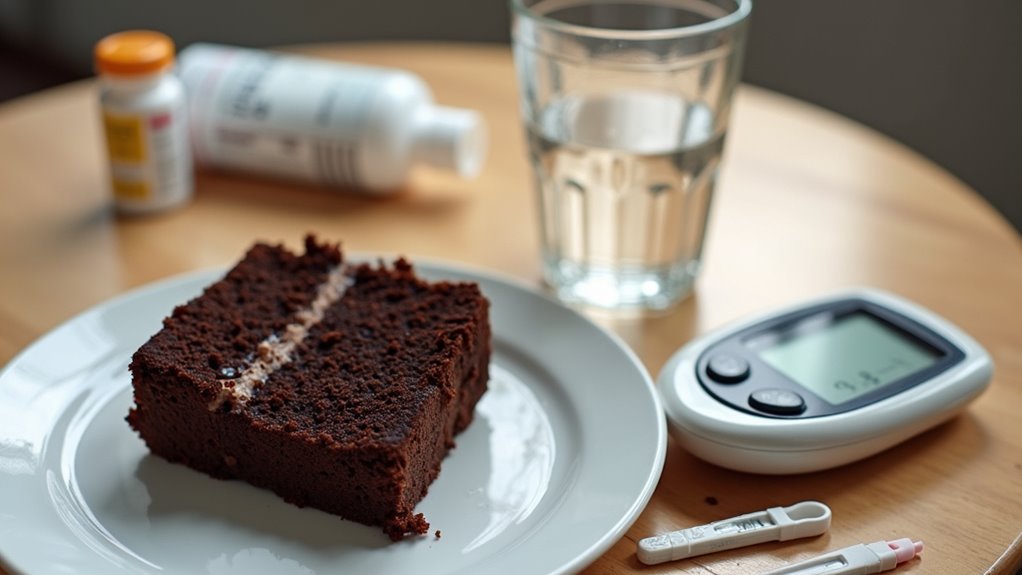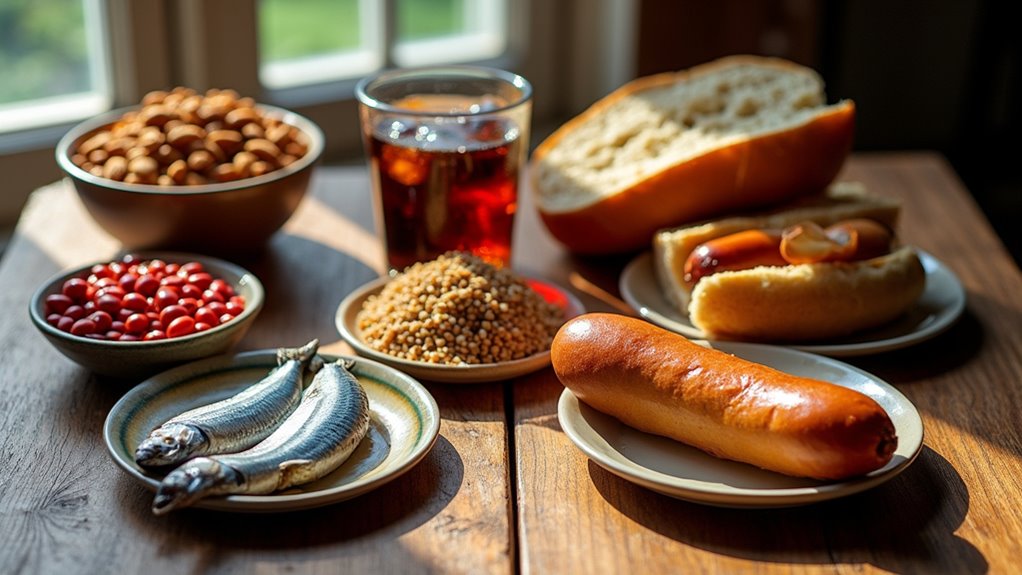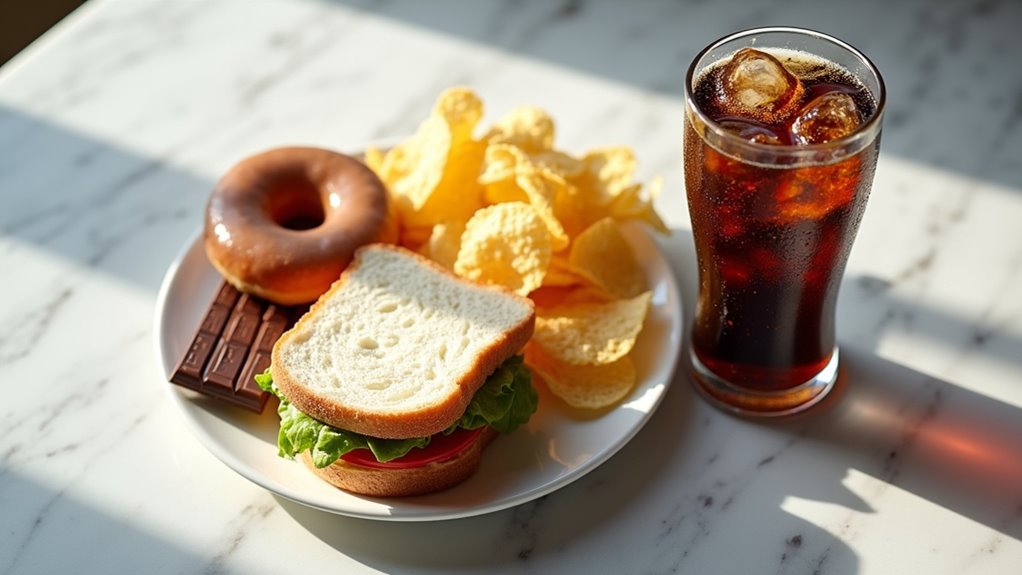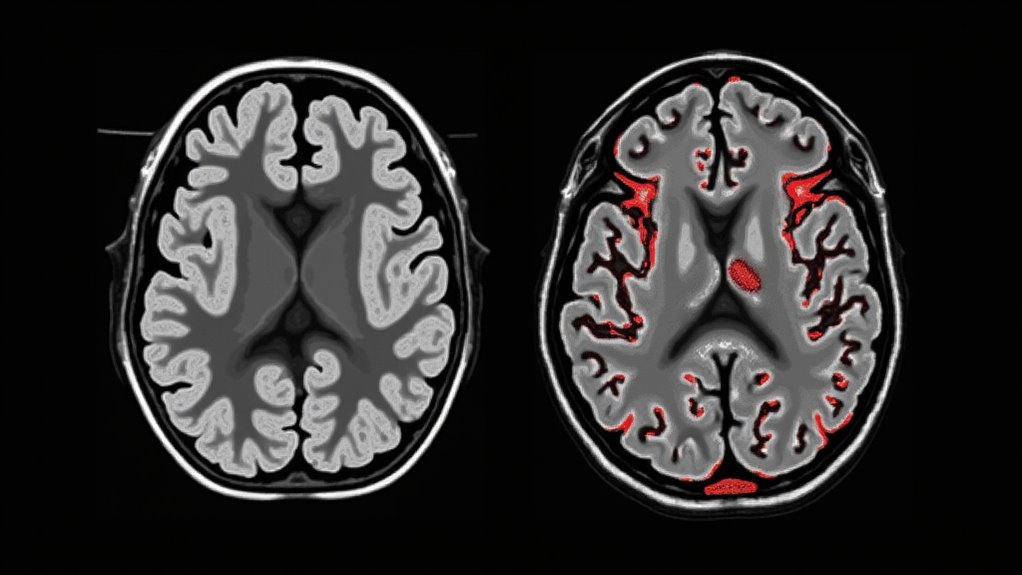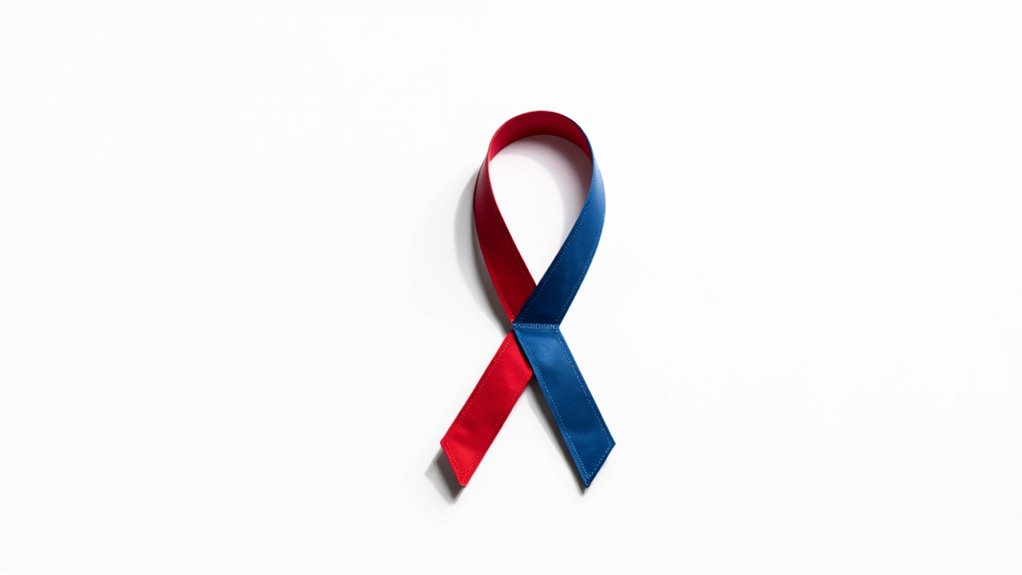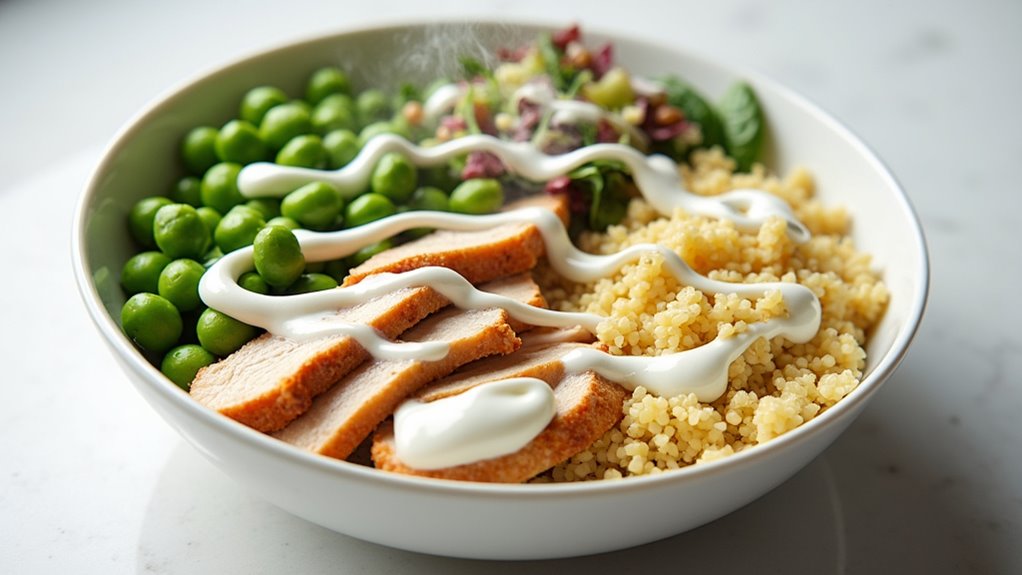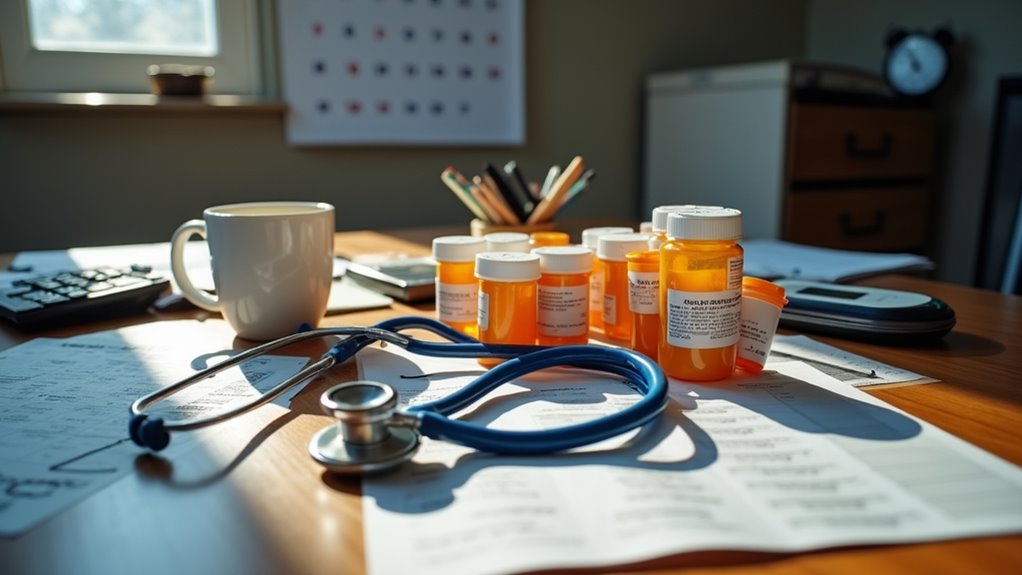When blood sugar skyrockets in diabetics, panic often follows. That’s understandable—high blood sugar is no joke. Hyperglycemia can quickly transform from an inconvenience to a medical emergency if ignored. The symptoms start innocently enough: increased thirst, frequent bathroom trips, blurry vision, feeling like you’ve been hit by a truck. But they escalate. Fast.
Blood sugar spikes aren’t just statistics—they’re warning flares your body sends before real trouble begins.
So you ate that slice of birthday cake. Or maybe two. Now what? First, don’t beat yourself up—stress makes things worse. Seriously. Your body releases hormones that further raise blood sugar when you’re anxious. Instead, drink water. Lots of it. Hydration helps flush excess glucose through urine. Check your blood sugar levels repeatedly—knowledge is power, even when the numbers aren’t pretty.
Skipped insulin today? Bad move. Medication adherence isn’t optional; it’s essential. Your body relies on two-phase insulin release to properly regulate blood sugar levels. If blood sugar remains dangerously elevated, seek medical attention immediately. Diabetic ketoacidosis doesn’t wait for convenient timing. Neither should you.
The causes of sugar spikes aren’t mysterious. Diet is obvious—those donuts weren’t worth it. But illness, stress, and certain medications like steroids can ambush even careful diabetics. The consequences of these spikes include developing resistance to leptin, which means your body has difficulty recognizing fullness and may lead to overeating. Even skipping your regular walk matters more than you think.
Long-term implications? They’re grim. Chronic hyperglycemia damages everything: kidneys, eyes, nerves, heart. Your body keeps score, and eventually collects payment. Remember that excessive sugar consumption can lead to glucotoxicity, causing widespread cellular damage throughout your body.
For immediate management, adjust medication as prescribed by your doctor. Never wing it. Monitor levels closely. Avoid overcorrection—swinging from too high to too low is jumping from frying pan to fire.
Moving forward, modify your diet. Fiber and protein are friends; added sugar is the enemy. Identify your trigger foods and avoid them like that ex who keeps texting at 2 a.m. Consider getting a dietitian—they’re worth their weight in insulin.
Exercise helps. A lot. Physical activity lowers blood sugar naturally. Start small, be consistent. Your pancreas can’t do its job properly—your muscles can help pick up the slack.
